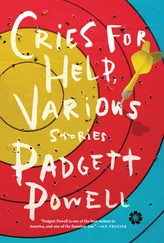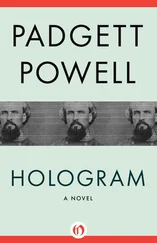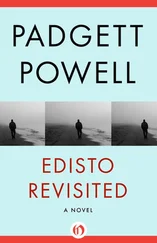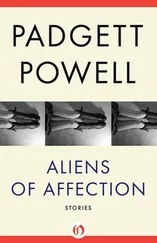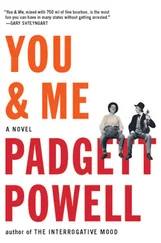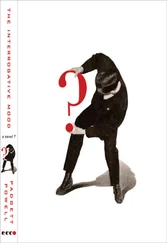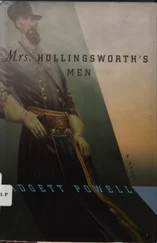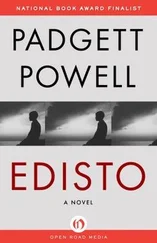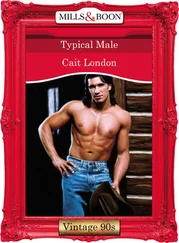I will confess to having lived finally a hungry, hollow life. I never left Pembroke and I had the stuff to have been anywhere. Yet whether my life was a failure or not is not the large matter, I hope: for I look at all the people who for one reason or another do not rise but remain routine and routinely small, and their failure as a class does not seem to amount to anything.
I took my pleasure then and now in small things — watching Brody run away one day, years later listening to him explain why he could not be a dogfighter, he there on the edge of his worthless plot and I on mine, his wild-eyed cat-dogs wagging at us. Brody excitedly telling me of his discovery of a new food concentrate that will save his money and his back, and of two puppies to be certified for international shipping — to Australia this time, where a man wants to see what they can do to kangaroos.
“Kangaroos?” I say. “Why hurt kangaroos?”
“I don’t know, Humpy.”
We must both have pictured our private, limited visions of kangaroo — gloved in carnivals, hopping the veld — and I remember thinking this is life, my life, standing at dusk speculating about the fate of a dimly known marsupial with my dimly known nephew I once rescued from pulling damp bolls and maybe from more, and Brody no doubt was thinking a bit less heavily, with refreshingly less profundity, about sending the red-and-white male or the larger washed-out gray dog, who might do better, against the down-under foe he’s heard can disembowel a man.
“Good night, Brody.”
“’Night, Humpy.”
He stands there a minute more, as I do, he in his slippery, hard dress shoes, which he perversely insists on wearing instead of practical boots. He is yet escaping that original, damp field, dressed for travel. The moon glints off these large, shiny wingtips, which trod uncertain across the sloping dirt to the jumping dogs.
I AM A STUDENT of low-affect living edged with self-deprecating irony.
I am a character of lower-affect living a bit on edge with Mr. Irony, a self-deprecating therapist.
A therapist of self-deprecation, teaching the presumptuous among us to edge ourselves with irony until we can be said to be low-affect burghers of the modern world, appropriate denizens of the modern world, Mr. Irony sits on the edge of the sofa smoking with his leg crossed over his knee after the fashion of a lady crossing her leg over her knee, not after the fashion of a man crossing his, etc., a manly configuration suggesting, from above at least, more the figure 4 than Mr. Irony’s position does. Mr. Irony’s position — smoking and bouncing his shoe in front of him, in the air in front of him, his shoe edged with the black trim applied by the black man at the barber shop with a toothbrush — suggests a pair of scissors more than a figure 4. His legs cut in slight snips the airy fabric of irony in the apartment around us.
Mr. Irony cuts a pattern of ironic air into certain pieces; they assemble on the carpet in no real order, to be sewn later into a garment, a coat of irony perhaps, a just-reminiscent-of-Nehru shirt-jac not for sale in any but the most hip low-affect haberdasheries in the world. This coat Mr. Irony will edge with a piping of flamingo pink he has begun to remove absently from the sofa upon which he scissors.
I will be expected to wear the ironic shirt-jac edged with flamingo piping as part of my low-affect therapy unless I do something. Doing something is precisely against the grain of Mr. Irony’s teaching, and yet if I were not resistant to becoming a low-affect self-deprecating character I would not need Mr. Irony to instruct me, and he is of course fully aware that pulling the piping for the jacket for me to wear in consummate humiliation — no. He is not aware, not aware that I am nervous about wearing the ironic coat. I must get Mr. Irony some wine, white wine, to occupy his hand that absently pulls the piping for the jacket. I shall tape the piping back into place. A ridiculous restoration that will crackle and fail, crackle and make Mr. Irony notice it with a particular, subtle smile. Then he will be aware.
He will be amused, tolerant of my device to not yet have to wear a late-Nehru jacket with flamingo edging in the irony-edged world. In my device to forestall the dismantling of the sofa he will see the natural Young Republican resistance to self-deprecating irony-edged low-affect living, and it will confirm his presence as my roommate and tutor, and he will scissor some more air, touch lightly the tape I’ve transparently tried to stop him with, sip his wine, think well of me. He has a good student who ever questions the development he seeks, a resistant student all the more worthy, for that resistance, of his efforts, and valuable to him, as are heathen to their converters for their very backwardness; a student who will come round, come round, come round in a swoon of faithful self-deprecation into the low-affect irony-feathered dance of life, the limbo of bending backwards so far that no disappointment can get beneath you, no rug of unexpected loss, jerked, can ever surprise. “Things do not turn out well,” Mr. Irony says.
“May I get you more wine?”
“More wine.”
“More wine, sir.”
“My man.”
“May we look out the window at joggers, sir?”
“Fine plan.”
Mr. Irony and I go out, for a lesson, to look at alligators. The alligators, located easily, display themselves, as if for our benefit, by walking about high-legged, out of the water, like dogs. “The crocodilian,” Mr. Irony says, “the crocodilian is not a creature of irony.” When Mr. Irony says irony, which he seldom does, he undergoes a phenomenon of nature, or of supernature: his edges recede and expand, almost at once, as if he italicizes. “The shark, by contrast, is a creature of irony.” Again he shimmers, he thins, is momentarily less and more than he was as he spoke the words “The shark, by contrast, is a creature of.” “In the gut of the shark you will find the license plate of the auto, the leg of the mannequin. Not so the gut of Alligator mississippiensis. In there,” he goes on, “at best the golf ball, the turtle.” The field trip is concluded.
All incidents roll off Mr. Irony’s mind like a drop of the water of dailiness from the oiled back of the duck of time. Mr. Irony has taught me locutions like this.
“Just to try,” he says. “To hone. To play. To discover.”
“Mr. Irony.”
“Yes?”
“Why? What does saying the oiled back of the duck of time exactly do —I mean, do for me as someone—”
“As someone seeking to edge himself with irony, put a self-deprecating piping around his minimal self-importance?”
“Yes, how does the playful locution do this?”
Mr. Irony will look at me over his glasses, a gesture I have come to know means that he disapproves of my questioning so bluntly; he is looking to see if perhaps I am not joking, hedging us up with feigned obtuseness. But no, I am not: I am obtuse.
“The oiled back of the duck of time does not precisely itself do anything. Whence it wends our way?”
“Well, I said it, or thought it.”
“You can make money and be famous if you write what you say or think, and the difference is therefore enormous.”
“Yes, sir. I wrote that incidents fall from your mind as drops of daily water from the duckback of time.”
“Not bad, that. You changed it somewhat.”
“Thank you, sir.”
I invited Mr. Irony on a trip around the world. “I’m sure you’ve been, of course,” I said.
“Be less sure,” he said.
“What’s that mean, sir?”
“Means, mostly.”
“You don’t care to go, then?”
Читать дальше

